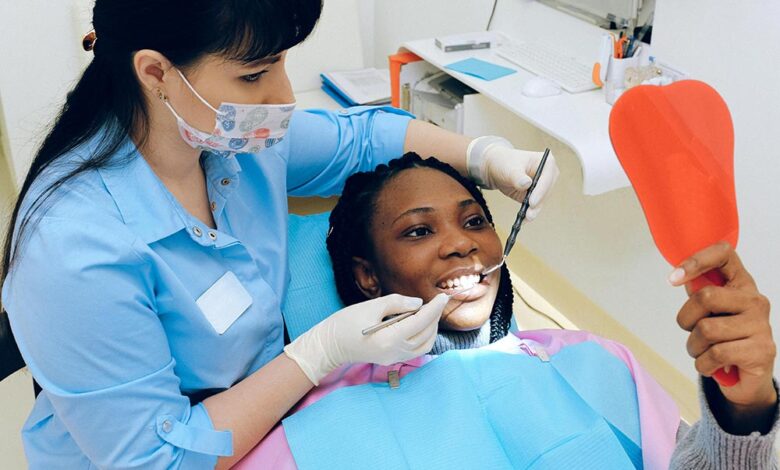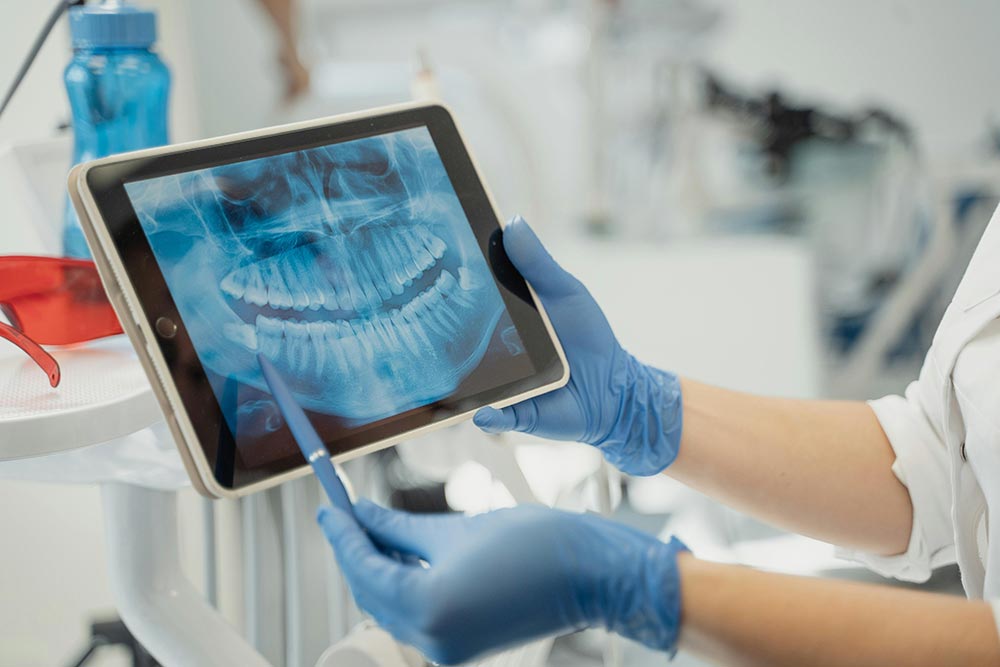
By Hermoine Macura-Noble
Special to The Times Kuwait
Our minds often drift to heart health, nutrition, or physical fitness when we think about health. However, one crucial aspect that is sometimes overlooked is dental health. Our oral health is a gateway to our overall well-being, significantly impacting our quality of life.
Proper dental hygiene and regular dental care helps prevent oral diseases such as tooth decay, gum disease, and bad breath. Tooth decay, for instance, is caused by the build-up of plaque — a sticky film of bacteria that forms on our teeth. If not removed through regular brushing and flossing, plaque can cause cavities and lead to more severe infections.
 Dubai-based Dentist Dr Holly McDonald explains, “Flossing between the teeth will help to remove plaque build-up, while brushing can be more effective in clearing the teeth and gums. Interdental brushes or a water flosser recommended by a dental professional can also be used. Visiting the dentist routinely every six months for a check-up and professional cleaning and quitting smoking can also help.”
Dubai-based Dentist Dr Holly McDonald explains, “Flossing between the teeth will help to remove plaque build-up, while brushing can be more effective in clearing the teeth and gums. Interdental brushes or a water flosser recommended by a dental professional can also be used. Visiting the dentist routinely every six months for a check-up and professional cleaning and quitting smoking can also help.”
Gum disease, or periodontal disease, is another critical issue in dental health. It begins as gingivitis, characterized by red, swollen, and bleeding gums. If untreated, it can progress to periodontitis, which can destroy the gums and bone that support teeth. Research has shown that gum disease is linked to systemic conditions such as diabetes, heart disease, and stroke. The inflammation associated with gum disease can exacerbate these conditions, making oral health a crucial factor in managing overall health.
“With increasing age, bone and gum recession is a much higher risk, so regular appointments for cleaning and examination to monitor this are important, as early interventions can make all the difference. There is also the potential for increased use of medication for chronic illnesses in older adults, a lot of which can have negative impacts on the oral cavity. I recommend informing your dentist of any medications and discussing any extra appropriate measures your dentist may suggest to protect your teeth and gums,” explains Dr. McDonald.
A healthy smile can significantly boost self-esteem and confidence. People who maintain good dental health are often more willing to engage socially and professionally. They can laugh, speak, and eat without discomfort or embarrassment, enhancing their quality of life. Healthy teeth are also essential for proper chewing, which is the first step in the digestive process.
Poor dental health can lead to difficulty chewing and swallowing food, affecting nutrition. Your teeth also play a vital role in your speech and articulation. Misaligned, broken, or missing teeth can affect pronunciation and clarity of speech. This can impact communication abilities, particularly in children still developing their language skills.
Experts say dental hygiene is vital to overall health and that brushing twice a day with fluoride toothpaste and flossing daily are fundamental practices for maintaining dental health.
“First thing in the morning, before you eat or drink anything, start by cleaning your teeth! I recommend first cleaning between your teeth with floss or interdental brushes and then brushing your teeth using fluoride toothpaste and an electric toothbrush for at least two minutes. After brushing, spit out the excess toothpaste in your mouth but do not rinse with water or a mouth rinse; even try to avoid drinking anything for about 30 minutes.
And don’t forget to clean your tongue and the roof of your mouth. I also recommend using an oral mouth rinse containing fluoride throughout the day, such as after lunch and dinner, to remove food particles from sitting on the tooth surface, increasing the risk for enamel decay and gum irritation. Then before bed, or at least one hour after eating your last meal, repeat the same cleaning process carried out first thing in the morning,” explains Dr. McDonald.

Most dentists recommend an electric toothbrush over a manual one, preferably one with a round brush head and a pressure sensor. When using a manual toothbrush, we are inclined to scrub harder than necessary, and this causes our gums to recede and the tooth surface to wear away, causing sensitivity.
With an electric toothbrush, the pressure sensor will indicate when this is occurring and help you avoid this trauma. Dr. McDonald also recommends looking for a toothpaste that contains fluoride with a concentration of between 1000 and 1500 ppm; this will always be included on the ingredients list on the packaging.
“You should always look for a fluoride-containing toothpaste but also ingredients such as pyrophosphates, zinc citrate, and sodium hexametaphosphate as these help to prevent tartar build-up on the tooth surface,” adds Dr. McDonald.
Dental health is an integral part of our overall well-being. Maintaining good oral hygiene, eating a balanced diet, and visiting the dentist regularly can prevent oral diseases and their associated complications. So, the next time you think about your health, do not forget to include your dental health — it truly is more than just a smile.
 By Hermoine Macura-Noble
By Hermoine Macura-Noble
The first Australian English speaking News Anchor in the Middle East. She is also the Author of Faces of the Middle East and Founder of US-based 501c3 charity – The House of Rest which helps to ease the suffering of victims of war. For more from our Contributing Editor, you can follow her on Instagram, here.












